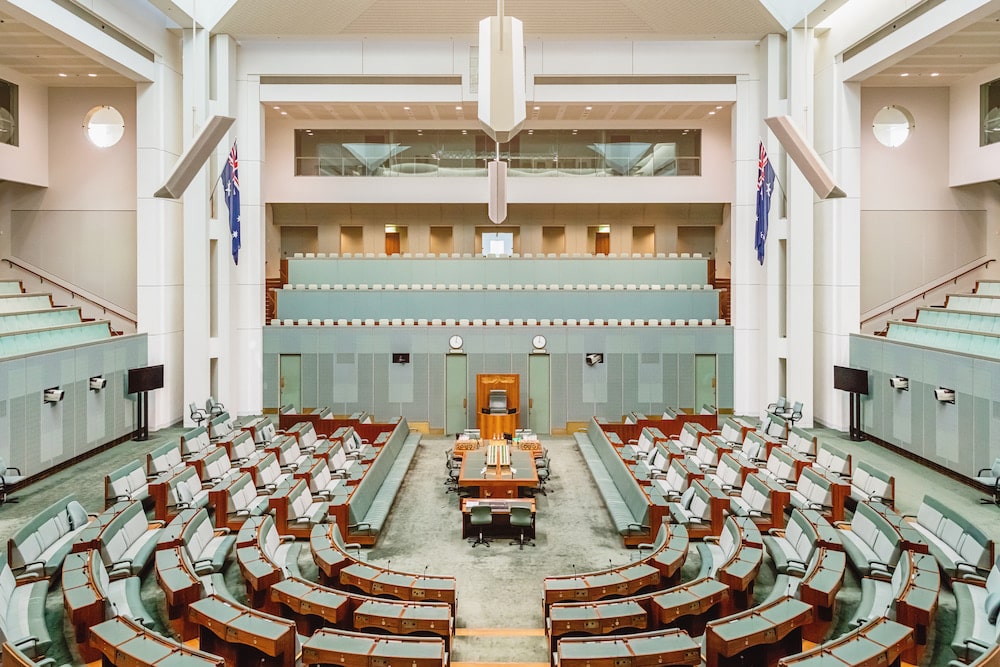Parliament sits next week, but the corridors of power will be empty and echoing. Parliament House will be closed to the public, and non-essential visits banned during the August session, Speaker Tony Smith and Senate President Scott Ryan announced in a joint statement this afternoon.
“The measures are as strict as possible and align with previous arrangements implemented in early 2020 to minimise non-essential activity at APH while still enabling sittings to proceed.”
The Senate and the House of Representatives will sit from Tuesday 3 August to Thursday 2 September. From Monday 2 August to Friday 3 September, only members, senators, parliamentary service staff, and media passholders will be able to visit the building.
Most politicians will participate remotely; fewer MPs and Senators will attend in person, and only essential ministerial, shadow ministerial, party spokespersons, and whips’ staff can accompany them. Sixty per cent of regular parliamentary departmental staff will work remotely. Public servants and journalists should not attend unless on essential business. School visits and other events will be cancelled or postponed.
ACT Health Minister Rachel Stephen-Smith said the announcement was a step forward. There was concern having politicians and staffers from across Australia – particularly from NSW – gathered in one place could be a super-spreader event.
“It shows that they are taking the situation very, very seriously – that they are taking the welfare of not just ACT residents but the whole country seriously, because a seeding event in Parliament House could then potentially spread to any other jurisdiction around the country.”
Parliament needed to continue to function, she continued. “There’s often urgent legislation that needs to be passed, and there is an accountability element to the operation of Parliament. … Further delaying the return of Parliament does have some significant implications for our democracy. And so, I think what we want to see is that Parliament will operate safely.”
Situation in NSW ‘the greatest risk to the ACT’
Although South Australia will reopen its borders tonight, and Victoria could end its lockdown soon, NSW has seen COVID numbers climb: 145 new cases yesterday, and two deaths over the weekend.
“We are obviously exposed to New South Wales; the situation in Greater Sydney presents the greatest risk to the ACT of any other situation around the country,” Ms Stephen-Smith said.
Recent exposure sites in Goulburn and Marulan and positive wastewater testing at Moss Vale had heightened public concern, she noted.
- Read also: Updated: ACT travel restrictions explained
- NSW crisis cabinet to meet over COVID-19
- ACT remains COVID free, but situation could change quickly
- NSW records 163 new local COVID-19 cases
The ACT Government was monitoring the situation in NSW very closely, Ms Stephen-Smith said.
“We have a lot of plans in place about the various things we could do in multiple scenarios.”
One of those plans could be a regional travel bubble encompassing Queanbeayan, Jerrabomberra, Murrumbateman, even Bungendore – areas where residents commuted to Canberra. People who travel to the ACT every day for work, shopping, or school needed to travel backwards and forwards across the border without a significant impost on them, she said.
Meanwhile, the ACT Government is offering 4,000 more appointments across its two vaccination hubs per week, of which 2,000 are for frontline workers (health care, aged care, and disability workers).
The ACT Government would not send its Pfizer vaccines to Sydney.
“We cannot establish a hard border between the ACT and New South Wales,” Ms Stephen-Smith said. “We are exposed to their situation, and so it’s really important that we continue with our vaccination program.”
It was also “a numbers game”, she argued: the Commonwealth provided an additional 50,000 doses to New South Wales out of their contingency reserve – more than three times the ACT’s weekly allocation of Pfizer vaccines; a third of those vaccines every week went to people getting their second doses.
“By the time you take into account what we could possibly free up for New South Wales, we would have to give up our first doses of Pfizer for weeks and weeks and weeks, just to get to that 50,000 that the Commonwealth has been able to take from their contingency reserve … If New South Wales wanted to reprioritise within their own allocation, obviously, that would be up to them.”



